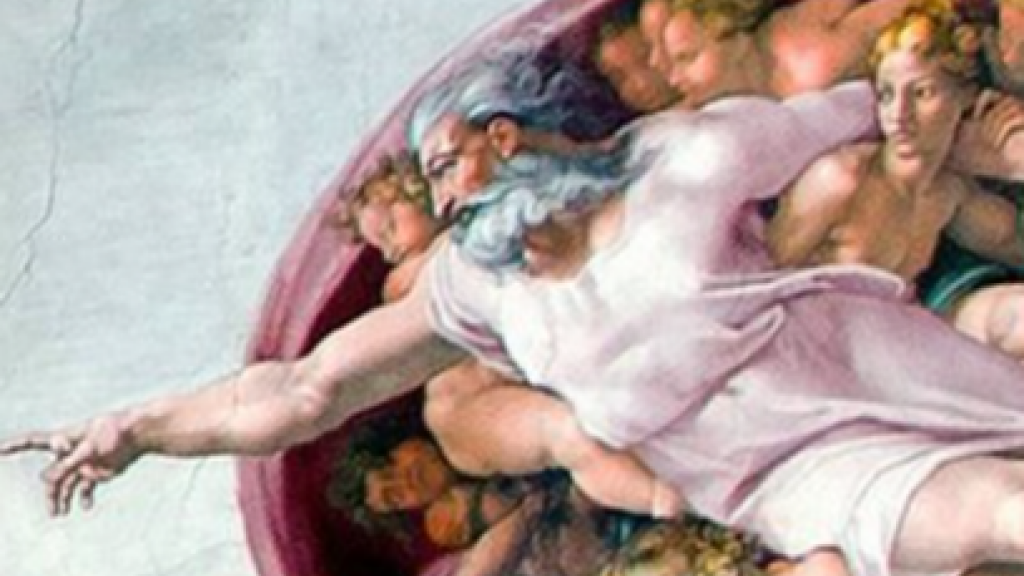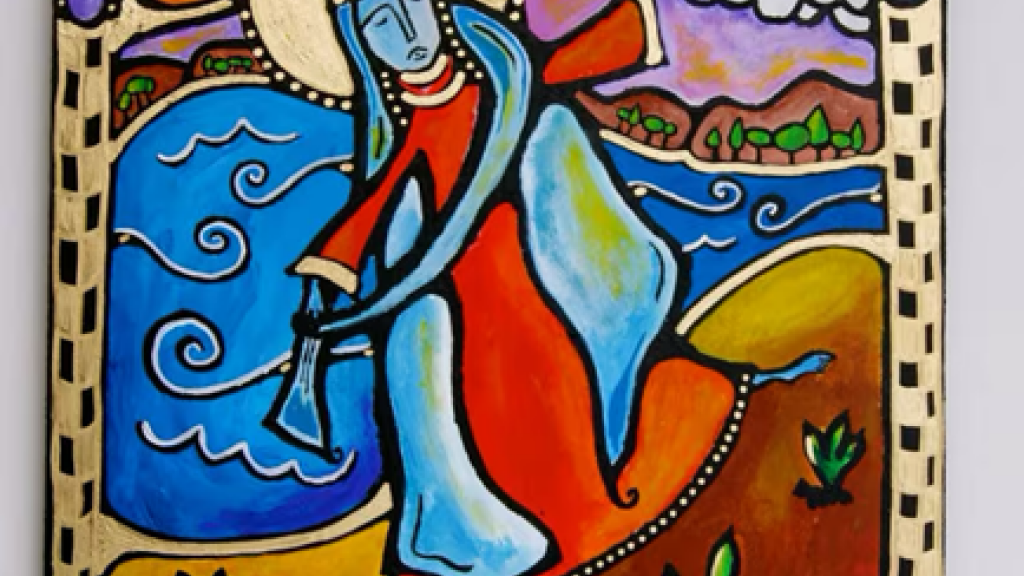July 21, 2024 | Rev. Loren McGrail

Miriam is the first born child from a father and mother from the house of Levi though all credit is given to the second born, the male baby, Moses. Our story begins with sibling tension. Due to a genocidal decree from Pharaoh to kill all male babies, the baby boy is kept out of site for three months. When this is no longer viable, Moses’s mother and Miriam come up with idea of placing him in a basket in the Nile so that he might be found and retrieved by Pharaoh’s daughter who comes down to the water to bathe every day. Miriam trusts the nurturing instinct in women, even enemy women. From afar, Miriam waits to see what would happen to shape the destiny of this child she knew was to be a liberator of her people.
With clarity of purpose and courage she moves forward and speaks to the Princess, “Shall I go and call for you a woman to nurse the child?” By speaking to the Princess directly, she is securing an action that can lead to saving the child. Both are committing civil disobedience. The Princess is defying her father’s orders and the servant girl also by saving her brother and making arrangements for baby Moses to be nursed. In addition, the woman to nurse him will be the baby’s mother. Nursed by his natural mother then, the child grows up to become the adopted son of Pharaoh’s daughter and receives from her the name Moses. Dear Ones, if Pharaoh had recognized the power of women, he might well have reversed his decree and had the daughters killed rather than the sons.
Miriam is the model of discretion and timing, she negotiates, meditates, and leads. She initiates a plan that delivers her brother so later he can deliver others. Dear Ones, the Exodus story owes its beginning not to Moses but to Miriam and the other women including the women within the Royal Palace itself. We will learn about two more Hebrew women next Sunday who also committed civil disobedience to save lives. Dear Ones, women of the Holmdel UCC, I invite you to reflect on the children’s lives you are called to save today. Who are the ones endangered or threatened? What can you do to save or liberate them? Men, what is your role in fighting the Pharaohs of our day? What does your liberatory strategy look like?
Back to the second part of our story. The next part takes place along the shore of the Red Sea or the Sea of Reeds as it sometimes translated.
Miriam’s command to sing was for men and women alike. She led a call and response song that has since become part of the Psalter and African-derived worship for centuries up to today. In many of our Christian churches today worship begins with praises to God. Some trace this back to Miriam’s call to sing.
Miriam’s song is part of a distinctive women’s tradition in Israel---performances that involve drum, dance, and song. Miriam is the mother of women prophets because she is the first to be identified in the Hebrew Scriptures. She appears in Exodus, Numbers, Deuteronomy, Chronicles, and Micah. Miriam’s name has two meanings. In Hebrew it means “bitter-water-woman” and in Egyptian it means “Beloved.”
This interpretation gives new meaning to the period of enslavement to include patriarchy itself, the power of men to dominate. Those who engage in critical race studies also draw the intersections between white supremacy and racial discrimination, the modern form of slavery. No wonder some of the powers that be today, our own Pharaohs, wish to eliminate or ban these studies. They can’t erase our holy scriptures however that show a God who persistently champions the oppressed.
Dear Ones, there has been much talk about aging lately and who is fit or not for political service. Let me remind you, Miriam was at least 85 when she helped lead her people to freedom from slavery. She did not marry or give birth herself so as not to give the Egyptian empire any children from her womb to become enslaved. Furthermore, some feminist scholars, including Rev. Dr. Wil Gafney, see Miriam as the pastor of the enslaved people even while Moses was leading them through the desert.
As I was preparing my sermon my mind went to other women leaders and prophets who have played leadership roles like Miriam. I thought of Harriet Tubman who led her people out of slavery crossing many rivers to get to freedom. I also thought of the important leadership role of Winnie Mandela during Nelson Mandela’s imprisonment. There is much controversy about her approach to leadership, but what is undisputed is how she kept the freedom struggle alive during those years of his imprisonment. Most recently I thought of importance of music and song in the life of Dr. Bernice Johnson Reagon, especially her musical leadership as a song writer and singer in the group Sweet Honey in the Rock. This is the name of the group which is taken from Psalm 81:16 which talks about people being fed with honey out of rock during their desert time. She has penned many songs but the one that most closely matches the energy and connection to Miriam is Ella’s Song: “We who believe in freedom cannot rest/ we who believe in freedom cannot rest until it comes.” This was the anthem of my UCC church in Chicago, a church dedicated to social justice and peacebuilding. Dear Ones, I invite you to lift up and call out women leaders or singers that remind you of Miriam.
Finally, Dear Ones, Miriam is also known in the rabbinic tradition for providing water for her people. It is said that a living well followed her throughout their time in the desert and that when she died the well went dry. In Feminist versions of the Haggadah spoken and sung during Passover, a goblet of water is placed on the table in memory of her leadership.
From the banks of the Nile to the shores of the Red Sea, and into the dry desert Miriam, the prophet who envisioned freedom, led her people. And when they got their first taste of it, she led them in song and dance. May we remember this too when we win small victors or need inspiration to continue the struggle.
As we go through these turbulent times in our own country in a climate changed world, where people of color and immigrants still feel their freedom is threatened, and women’s rights and freedoms are again threatened, I invite you to look around and find the Miriams working silently within our own imperial systems, saving children and other vulnerable people, and when we find her let us join her in song because freedom is coming. It will take each of us, no matter our age, to outsmart the powers, to sing our victories, and provide refreshment for each other in those times it feels like we are in the desert. Miriam’s spirit is shared by all those who believe in freedom. We cannot rest until it comes and the “lands sing to each other.”


